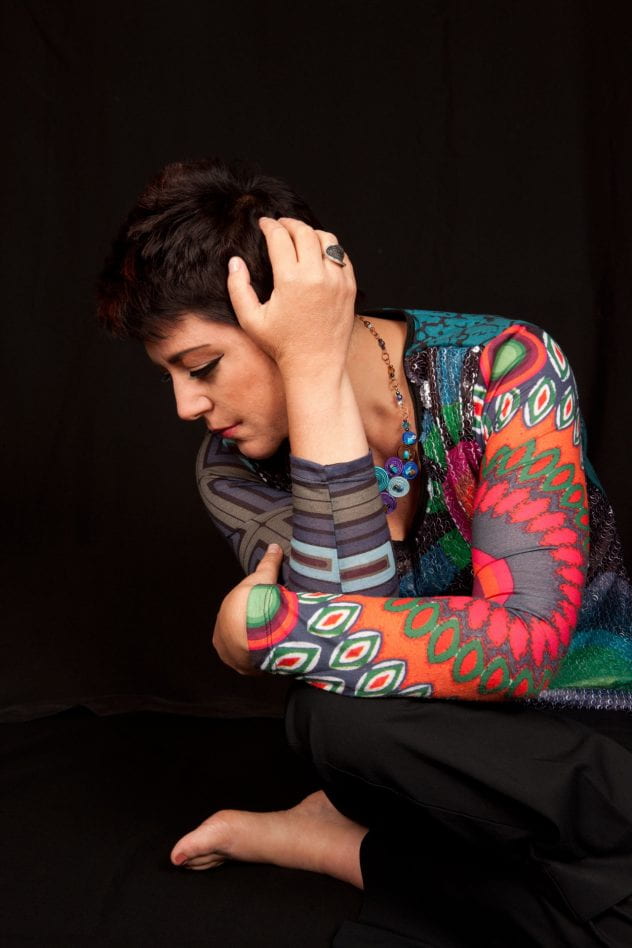
Historically, the Camino Real connected Spanish missions along the state of California. Image by Chandler O’Leary.
How can music reframe the story of the ancient road we know as El Camino Real?
Mexican composer Gabriela Ortiz and the folk Americana band the Ronstadt Brothers will celebrate California history through their music on October 1-3, during a weekend of activities presented by San José State University’s College of Humanities and the Arts, The Martha Heasley Cox Center for Steinbeck Studies, TomKat MeDiA, CaminoArts and Symphony Silicon Valley (SSV). The Ronstadt Brothers will also offer a moderated conversation on the business of music.
“CaminoArts celebrates the folk and classical music of Mexico and Latin America through an excavation of El Camino Real, the historical indigenous trade route used by the Spanish to colonize Mexico and what is now the U.S. Southwest and South America,” said Marcela Davison Aviles, managing partner and executive producer at TomKat MeDiA, a production company founded by Tom Steyer and Kat Taylor to inspire creativity for the common good.
“We brought this idea to the Center for Steinbeck Studies as a way to catalyze writing a new fourth-grade curriculum about the history of El Camino Real.”
Ortiz’s new composition, a concerto for flute and orchestra entitled “D’Colonial Californio,” will make its world premiere at 8 p.m. Saturday, Oct. 2, with SSV at the California Theatre, and again at 2:30 p.m. on Sunday, Oct. 3.
Her work is a joint commission underwritten by the TomKat Foundation and presented in collaboration with TomKat MeDiA, SSV, CaminoArts and San José State as part of a broader initiative to examine California history through arts and education.
Admission to the Ronstadt performance is free. Tickets for the symphony performance are on sale through Symphony Silicon Valley.
“The stories and songs inspired by El Camino Real — the transcontinental pathway forged by Indigenous peoples and later colonized by the Spanish and other European powers — set the stage for the Camino Chronicle Arts series,” said Kat Taylor, founding director of the TomKat Ranch Educational Foundation (TKREF) and one of Camino Chronicles’ sponsors.
“We’re thrilled to illuminate the work of Mexican composer Gabriela Ortiz, Mexican American singer/songwriters Peter and Michael G. Ronstadt, concert flutist Marisa Canales, the musicians of Symphony Silicon Valley under the baton of Maestra JoAnne Falleta, and project music director Benjamin Juarez Echenique,” she added.
“And we’re doubly delighted to thank San José State University and the Martha Heasley Cox Center for Steinbeck Studies for believing, as John Steinbeck did, in the unique power of harmony, dissonance, cadence and rhythm of diaspora and migration.”
The symphony will also perform “New World Symphony” by Antonín Dvořák, a piece that was especially meaningful to John Steinbeck, added Steinbeck Center Director and Assistant Professor of American Studies Daniel Rivers. Canales, who also is a co-founder of CaminoArts, will serve as soloist for both the Saturday evening and Sunday afternoon performances, under the direction of Grammy-winning conductor Maestra Falletta.

The Ronstadt Brothers will be performing at the Hammer Theatre on Oct. 3. Image courtesy of Marcela Davison Avilas.
The Ronstadt Brothers will perform the world premiere of their new album “The Road,” commissioned by the Camino Chronicles Project and underwritten by the TomKat Foundation, at the Hammer Theatre at 3 p.m. on Sunday, Oct. 3. The event is free and open to the public.
“This full-length album from the Ronstadt Brothers centers on the theme of roads, migration and the existential experience of travel,” Rivers said.
Multi-instrumentalists Michael G. Rondstadt and Peter D. Rondstadt describe their music as a “new and fresh take on traditional Southwestern and Mexican folk songs” that carries forward the legacy of their aunt Linda and their father Michael.
“The curricular connections of the Camino Chronicles with the university are related to music, history, humanities and education,” said Shannon Miller, dean of the College of Humanities and the Arts.
“Ortiz’s work rethinks the identity of the El Camino around issues of migration, while the Ronstadt Brothers are composing work in the American folk music tradition while also exploring connections to their Mexican heritage and the Camino’s indigenous roots. This introduces a lot of interesting issues related to decolonizing the curriculum and the arts,” Miller added.
Visit the Symphony Silicon Valley to learn more about the Oct. 2 and 3 performances of Ortiz’s work.
Learn more about the Rondstadt Brothers’ performance and work with the Steinbeck Center.
Read about TomKat MeDia and CaminoArts.

